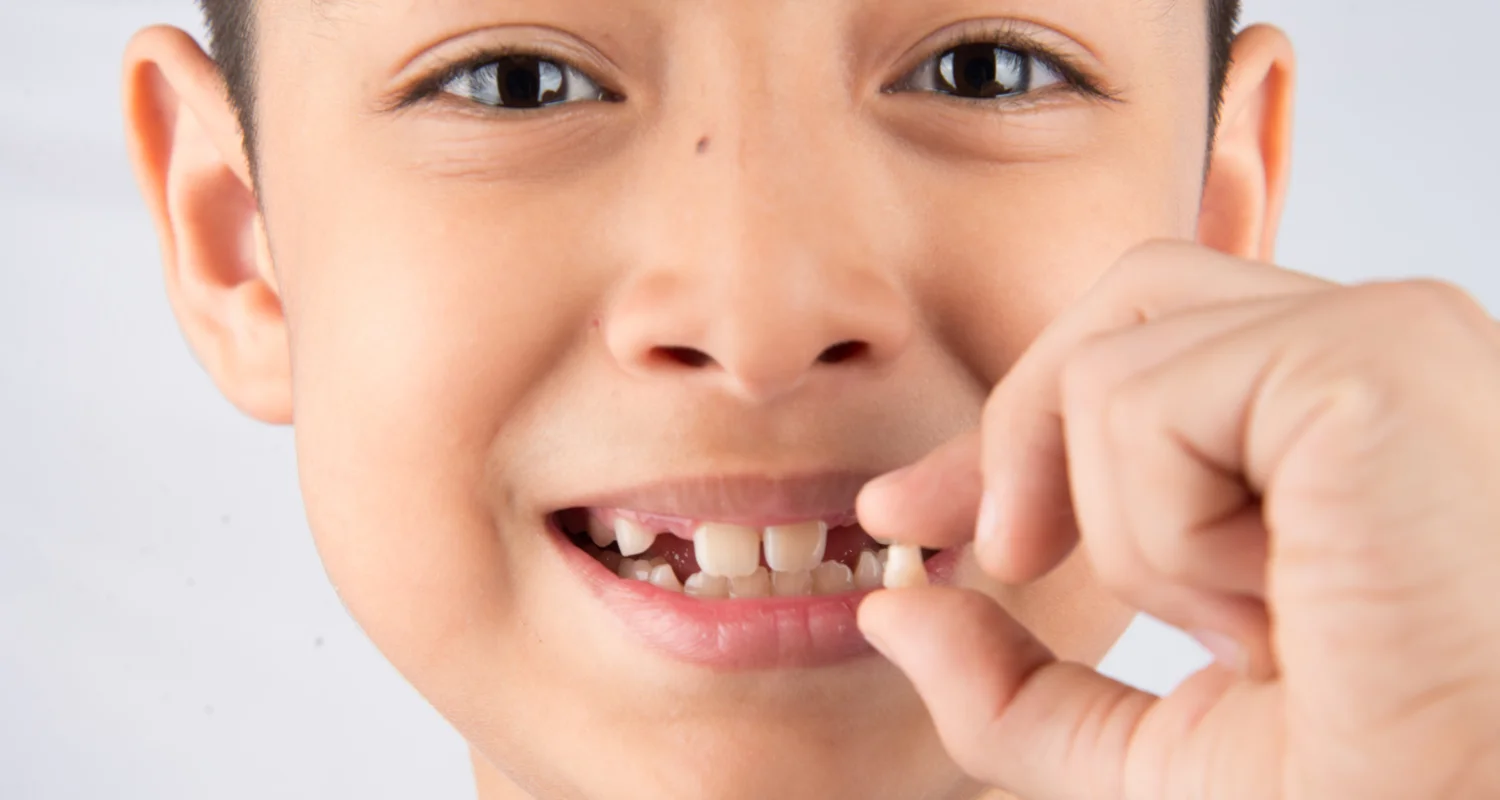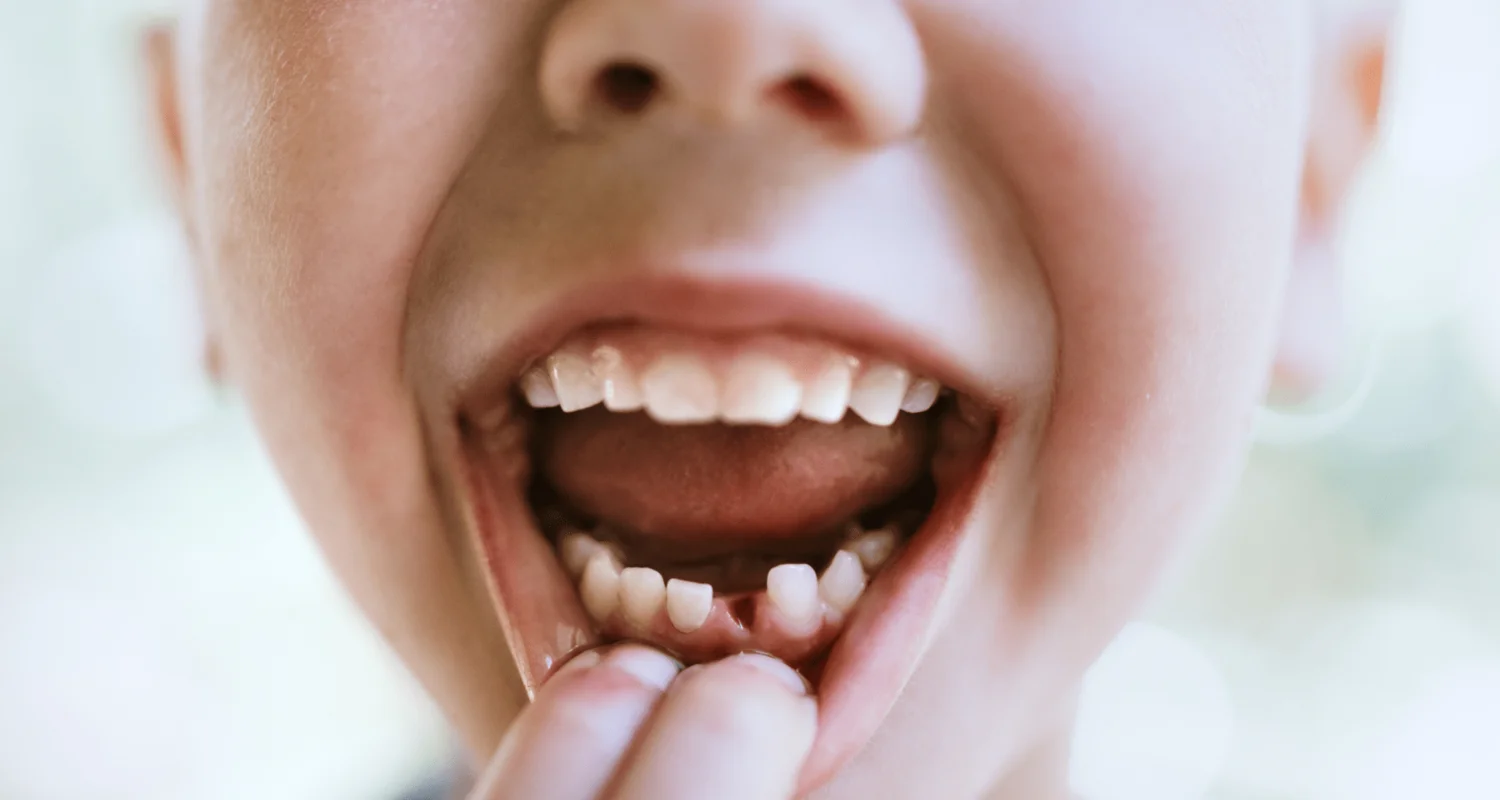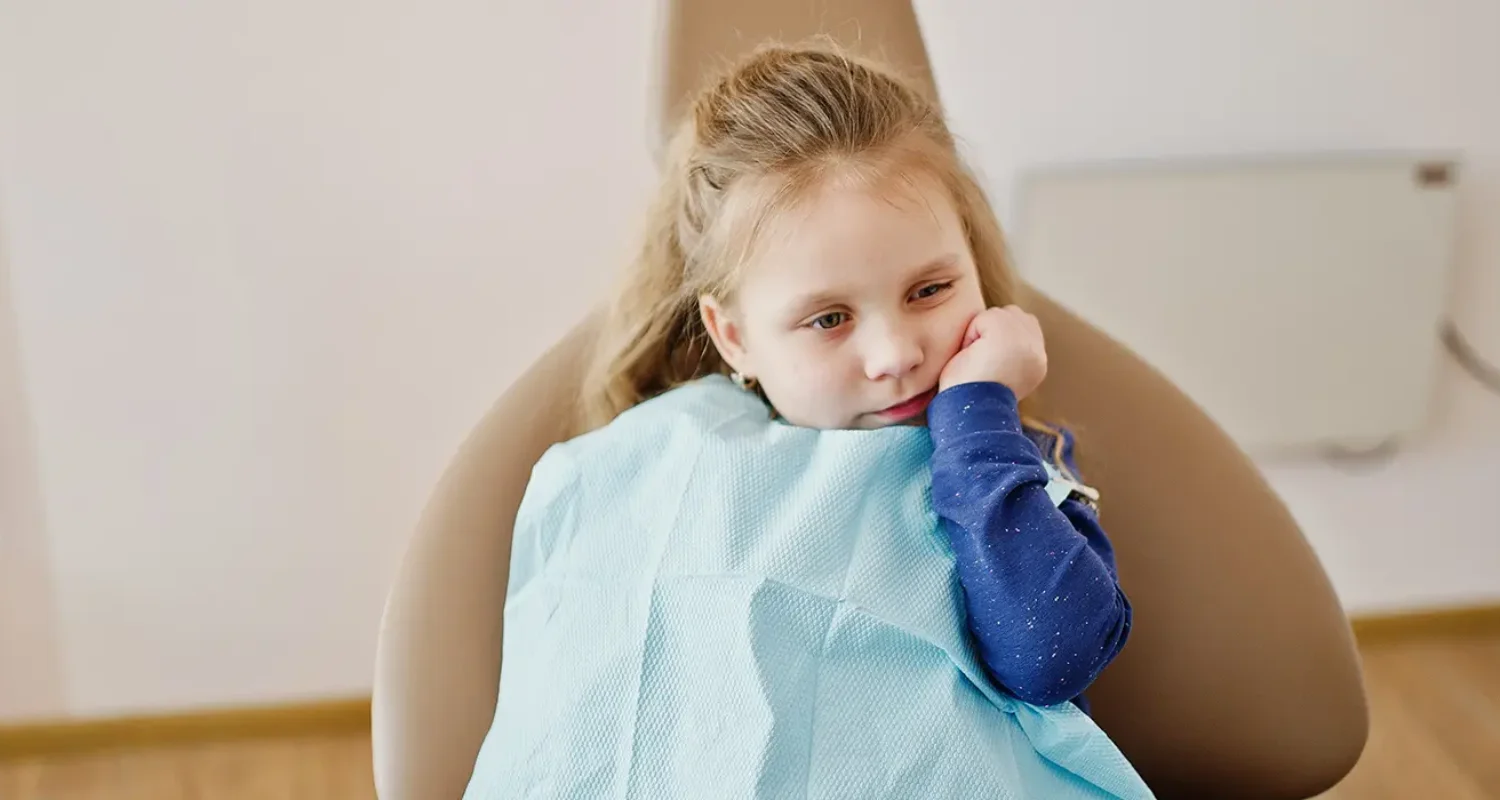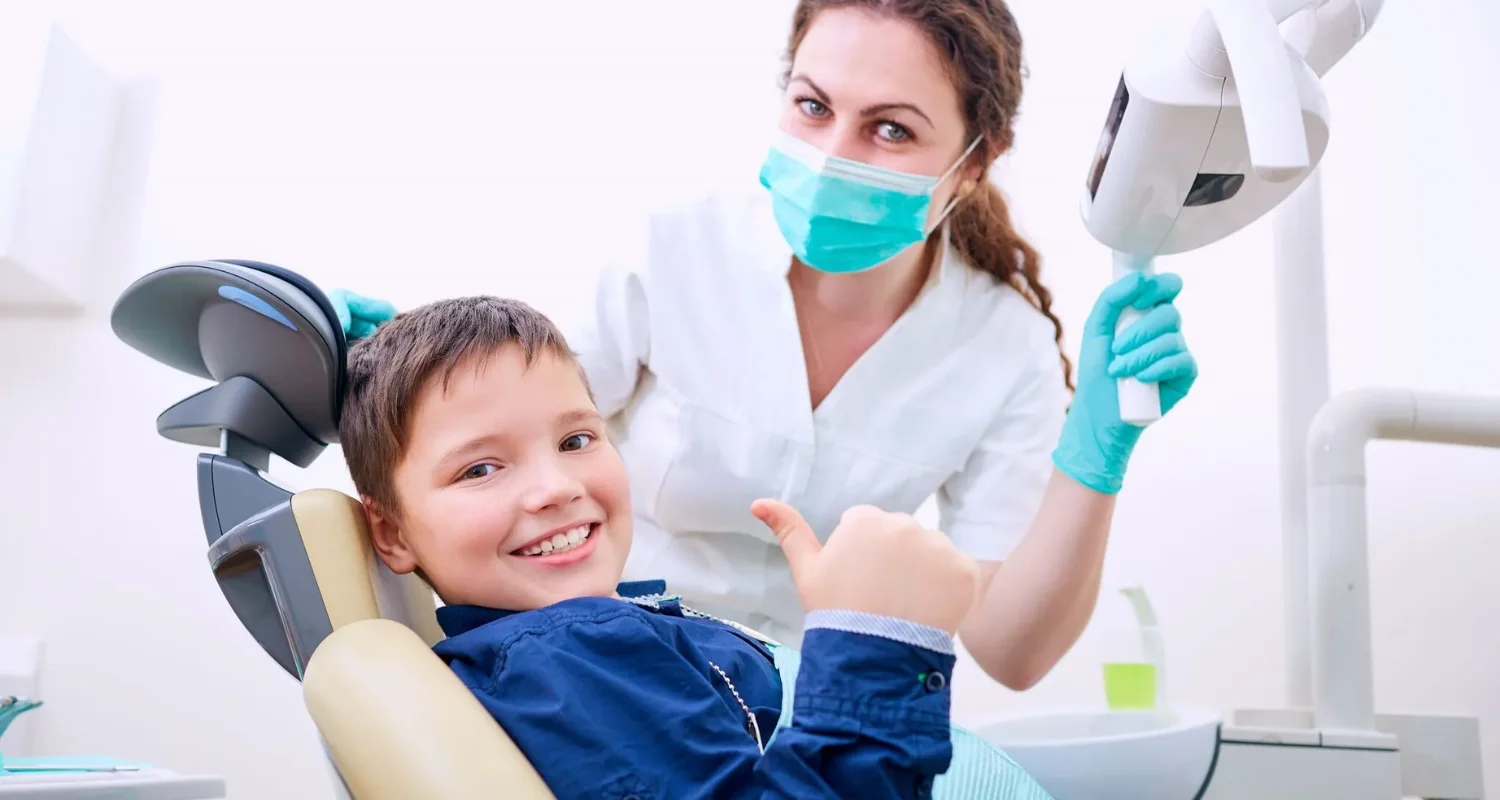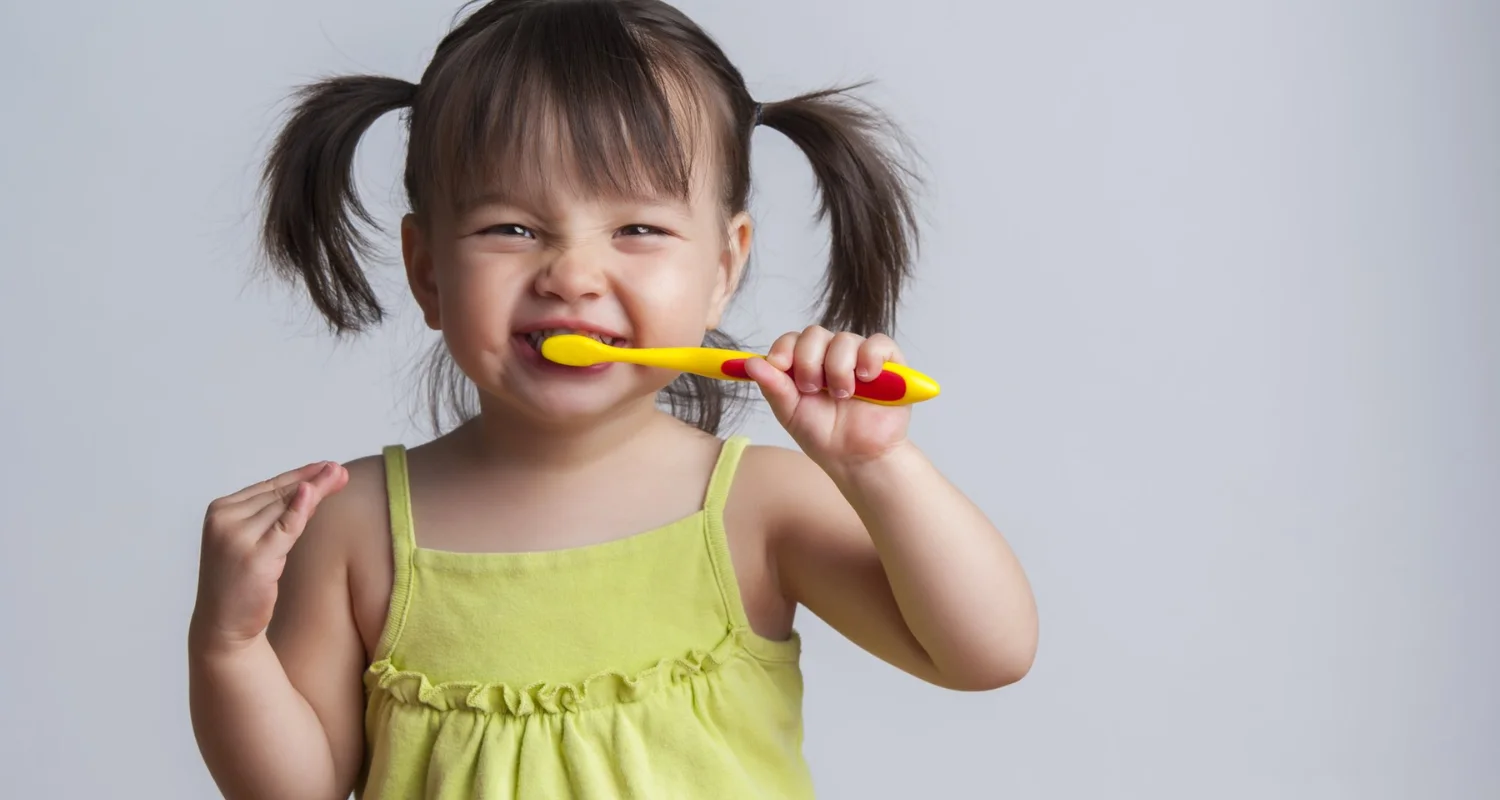Last Updated on: 15th December 2025, 10:59 am
Early loss of deciduous teeth can affect kids’ dental health. Learn what parents can do to handle early tooth loss, including home care and dentist visits.
Losing a baby tooth for the first time is an exciting milestone for many children. However, what if your child seems too young to lose a tooth, or if a tooth is unexpectedly knocked out?
Our dental arches are naturally designed to ensure that baby (primary) teeth create a smooth path for the proper and aligned eruption of permanent teeth. Any disruption of this delicate balance, such as the premature loss of baby teeth, can lead to several avoidable complications.
Preserving healthy primary teeth until they are ready to naturally fall out is essential for maintaining this harmony.
In this article, we will learn everything there is to know about the early loss of deciduous teeth, its causes, and basic tips to deal with it effectively.
What is Early Loss of Deciduous Teeth?
The early loss of deciduous teeth plays a critical role in the development of proper occlusion and is a common oral health issue worldwide. Loss of a primary tooth before the process of its natural shedding is referred to as premature loss of primary teeth. This condition can affect the alignment and spacing of permanent teeth, making it an important issue to address early.
Typically, children start losing their baby teeth naturally around age 6 and continue until they are 11 to 13. The lower central incisors are usually the first to fall out, with the second molars being the last. However, each child’s tooth loss schedule can vary, and differences in the timing and order are generally not a concern. If a tooth is lost significantly before age six, it’s advisable to consult a pediatric dentist for proper guidance.
What Causes Early Loss of Baby Teeth?
Several factors can contribute to the early loss of deciduous teeth, including:
● Dental trauma: Injuries from accidents or falls may result in the early loss of baby teeth.
● Dental caries: Severe cavities can weaken baby teeth, causing them to fall out before their natural time.
● Genetic factors: Inherited conditions can affect the development and retention of baby teeth.
● Gum disease: Infections or gum inflammation may cause baby teeth to loosen and fall out early.
● Ectopic eruption: When permanent teeth, especially the first molars, erupt abnormally, it can lead to premature loss of baby teeth.
● Medical conditions: Certain health issues, like hypophosphatasia (a genetic disorder affecting bone development) or some childhood cancers, can contribute to early tooth loss.
● Intentional extraction: Severe decay or infection may require removing a primary tooth before it is ready to fall out naturally.
Similarly, dental trauma can loosen a tooth, leading to infection and the need for extraction.
Long-term Effects of Early Loss of Deciduous Teeth
Early loss of deciduous teeth can have detrimental long-term effects on your child’s dentition, such as:
● Malocclusion: Early loss of molars can lead to crowding, midline shifts, and misalignment of permanent teeth. This occurs because the reduction in arch length can cause rotation, crowding, or impaction of permanent teeth.
According to one study, it was observed that children who lost their deciduous teeth prematurely needed orthodontic treatment three times as often as those whose primary teeth were not lost too early.
● Delayed eruption: Losing baby molars too soon may slow down or prevent the eruption of permanent bicuspids. Space maintainers are often needed to avoid impaction.
● Deleterious habits: Early tooth loss can contribute to the development of harmful oral habits, such as tongue thrusting or thumb sucking.
● Disturbed mastication: Missing teeth can interfere with proper chewing and affect nutrition.
● Speech defects: Premature loss of baby teeth may cause speech difficulties as teeth play a key role in forming sounds.
● Jaw development issues: Uneven or asymmetric jaw growth may result from premature tooth loss, disrupting overall facial development.
● Lower self-esteem: Missing teeth at an early age can negatively affect a child’s confidence and self-image.
What Should You Do When Your Child Loses a Tooth Too Early?
Wondering what to do if your child loses a tooth before they’re supposed to? Keep reading to learn more!
Stay calm and check the area
Remain calm and reassure your child. Examine the site of the loss for excessive bleeding or signs of trauma, and clean the area gently with a damp cloth if necessary.
Visit the dentist ASAP
If you suspect a baby tooth has fallen out prematurely, contact your child’s pediatric dentist. Although baby teeth will be replaced by permanent ones, they are vital for your child’s dental health, given that they hold space for permanent teeth and support the development of a proper bite.
Pediatric dentists can diagnose the cause of early tooth loss and help prevent further issues. They can also determine if a space maintainer is necessary to prevent adjacent teeth from shifting into the gap, which could lead to crowding and misalignment.
Take note: Do not reinsert a lost baby tooth into your child’s gums, as this could harm the developing permanent teeth.
Tips to Prevent Early Loss of Deciduous Teeth
While it may not always be possible to prevent the early loss of a child’s primary teeth, there are several strategies you can implement to help minimize this risk.
1. Encourage oral hygiene: Encourage the child to have good oral hygiene habits: brushing and flossing once or twice a day. The consumption of sweet beverages like juice, soda, and sports drinks should be minimized and the child should be encouraged to eat a well-balanced diet.
2. Use protective gear for sports: Ensure that your child wears an athletic mouthguard while participating in sports or games. A custom-fit mouthguard from your child’s dentist offers the best protection for their teeth and gums.
3. Schedule regular dental checkups: Regular visits to a pediatric dentist are crucial for early detection and prevention of tooth loss. Through visual examinations and diagnostic imaging, the dentist can identify potential issues and assess your child’s risk for premature tooth loss. If your child is found to be at higher risk, the dentist will collaborate with you to monitor and reduce that risk effectively.
By following these steps, you can help safeguard your child’s dental health and reduce the chances of early loss of deciduous teeth.
Early loss of deciduous teeth may lead to dental problems, such as misalignment, delayed eruption, and speech impediments. Here, prevention is key, and parents can minimize this risk with good oral hygiene, protective gear while participating in sports, and regular dental checkups, starting right from their first birthday. Early intervention by your child’s pediatric dentist will further reduce premature loss of primary teeth.
Frequently Asked Questions
What age do children stop losing their teeth?
Children generally stop losing their baby teeth between the ages of 11 and 13. The process typically begins around age 6 when the lower central incisors fall out and ends when the second molars are replaced by permanent teeth. However, each child’s schedule may vary slightly.
What causes early loss of deciduous teeth?
Early loss of deciduous (baby) teeth can be caused by a variety of factors, such as dental trauma, cavities, gum disease, genetic conditions, or certain medical disorders like hypophosphatasia. Premature tooth loss can also occur if a permanent tooth erupts too early.
What are the consequences of early loss of primary teeth?
Losing primary teeth early can lead to several issues, including malocclusion (misalignment of permanent teeth), delayed eruption of permanent teeth, speech problems, and improper jaw development. In some cases, it may also affect chewing and self-esteem due to missing teeth.
Can early tooth loss be prevented?
Yes, early loss of baby teeth can often be prevented with proper oral hygiene, regular dental visits, and the use of mouthguards during physical activities. Ensuring children avoid sugary snacks and beverages can also reduce the risk of cavities that lead to premature tooth loss.
Share:
References
1. Jayachandar, D. (Jun, 2019) Prevalence of early loss of primary molars among children aged 5–10 years in Chennai: A cross-sectional study. Journal of Indian Society of Pedodontics and Preventive Dentistry 37(2):p 115-119, DOI: 10.4103/1319-2442.261340. https://pubmed.ncbi.nlm.nih.gov/31249172/
2. Shakti. (October, 2023). Effect of premature loss of primary teeth on prevalence of malocclusion in permanent dentition: A systematic review and meta- analysis Systematic review and meta-analysis. International orthodontics 21(4), 100816. https://doi.org/10.1016/j.ortho.2023.100816
3. Zou, J. (Mar, 2018). Common dental diseases in children and malocclusion. Int J Oral Sci 10, 7. https://doi.org/10.1038/s41368-018-0012-3
4. Selvabaji A. (October, 2022). Prevalence of Early Primary Teeth Loss in 5-9-year-old Schoolchildren in and around Melmaruvathur: A Cross-sectional Study. The journal of contemporary dental practice, 23(10), 1004–1007. https://doi.org/10.5005/jp-journals-10024-3403
5. Spodzieja, K. (Mar, 2022). Premature Loss of Deciduous Teeth as a Symptom of Systemic Disease: A Narrative Literature Review. International journal of environmental research and public health, 19(6), 3386. https://doi.org/10.3390/ijerph19063386
-
Nayibe Cubillos M. [Author]
Pharmaceutical Chemestry |Pharmaceutical Process Management | Pharmaceutical Care | Pharmaceutical Services Audit | Pharmaceutical Services Process Consulting | Content Project Manager | SEO Knowledge | Content Writer | Leadership | Scrum Master
View all posts
A healthcare writer with a solid background in pharmaceutical chemistry and a thorough understanding of Colombian regulatory processes and comprehensive sector management, she has significant experience coordinating and leading multidisciplina...


